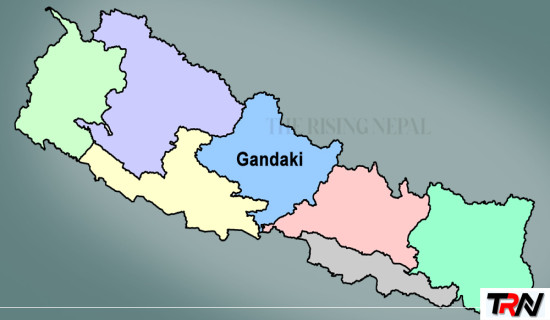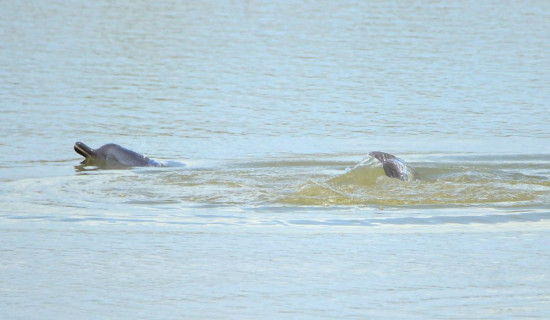- Sunday, 24 August 2025
Father's Day observed
By A Staff Reporter,Kathmandu, Aug. 24: Kushe Aunsi, also known as ‘Buwa ko Mukha Herni Din’, Father’s Day or Gokarna Aunsi, was observed across the country on Saturday with rituals, offerings and family gatherings.
Kushe Aunsi is celebrated on the new moon (Aunsi) of the lunar month of Bhadra (August/September).
This day is dedicated to honouring fathers, both living and deceased, with families visiting fathers to present gifts and delicacies and performing rituals, at the religious sites for their deceased fathers and ancestors.
Similarly, as a part of the tradition, Hindu families brought Kush, a sacred grass, into their homes. It is believed that placing Kush, sanctified by priests with mantra, ensures the prosperity and well-being of the household.
Kush is used throughout the year in religious ceremonies. It is considered as a symbol of purity and protection.
Markets in the capital were crowded from early morning, as daughters and sons brought fruits, sweets and presents for their fathers to show love and respect to their fathers. At the same time, large numbers of devotees thronged the Gokarneshwor Uttargaya Temple in northeast Kathmandu, regarded as a sacred site for ancestor worship.
According to the religious belief, performing offerings at Gokarneshwor on Bhadra Krishna Aunsi provides salvation to ancestors dating back 21 generations. On this occasion, those whose fathers have passed away perform Shraddha (ancestral rites) and Tarpan (ritual offerings). The festival was celebrated with equal devotion in Madhes Province. According to our Bardibas correspondent Rabindra Upreti, families there also welcomed kush into their homes and honoured their father with respect and care.
Pandit Iswhar Pyakurel explained that serving one’s father with devotion and receiving his blessings is believed to bring happiness, peace and prosperity. The festival is also valued as a time for family reunions, strengthening bonds, among relatives and fostering emotional closeness, he added.
However, with the growing use of digital communication, traditional practices of serving and honouring parents are increasingly being confined to virtual expressions, he claimed.
For those whose fathers are no longer alive, the day is marked by visiting temples, performing sharaddha or at the very least offering sida daan (food donation) and water. In Madhes, devotees are thronged the banks of the Ratu, Madaha and Banke rivers from early morning, where people performed rituals in memory of their fathers.
According to Pyakurel, even if all rituals of Shradhha could not be performed, small offerings and donations are considered equally meritorious, bringing peace to departed souls and stability to the family lineage.
















